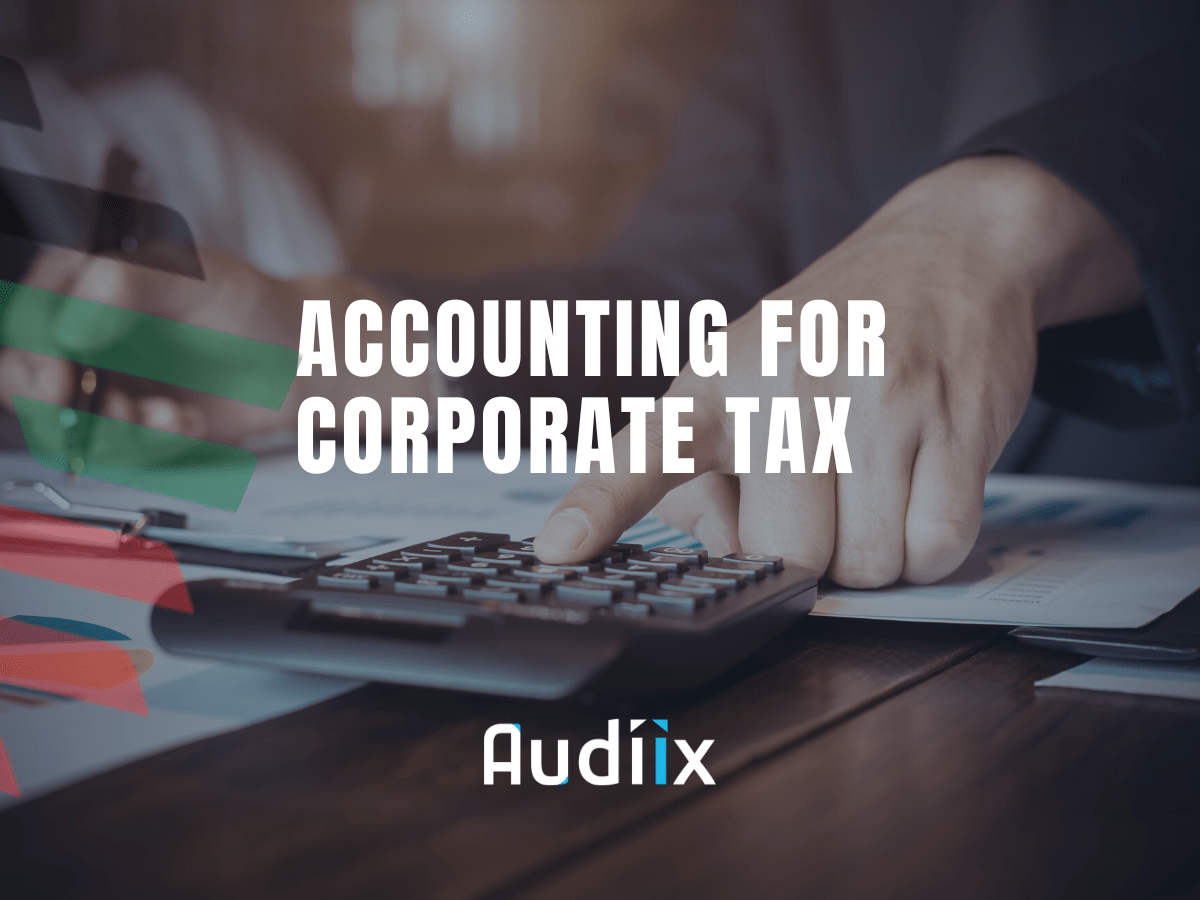Accounting & Audit Requirements for Corporate Tax Purpose

As the implementation date of corporate income tax approaches swiftly in the UAE, it is imperative for businesses to be adequately prepared. Among the initial steps to prioritize, meeting the accounting requirements stands out as a vital starting point. These accounting requirements serve as the fundamental framework for ensuring compliance with corporate tax regulations. Embracing sound accounting practices not only helps in fulfilling regulatory obligations but also brings forth a host of additional advantages, which we will delve into in this article.
Determining Taxable Income
Corporate tax calculation revolves around the concept of taxable income. Taxable income is derived from the net accounting profit, which is then adjusted to account for both allowable and disallowable taxable deductions. As a result, the calculation of corporate tax relies heavily on the accurate and comprehensive preparation of a company’s financial statements. These financial statements play a crucial role in determining the taxable income on which corporate tax obligations are assessed.
Accounting and Reporting Standards
Preparing financial statements and calculating taxable income must be done in accordance with the International Financial Reporting Standards (IFRS), which are the accepted accounting standards here in the UAE. In addition, small and medium-sized entities (SMEs) with annual revenue up to 50 million dirhams can adopt a simplified and streamlined version of the full standards known as IFRS for SMEs.
Basis of Accounting
Typically, financial statements are prepared using the accrual basis of accounting, recording transactions when they occur, regardless of the actual cash flow. However, the Federal Tax Authority (FTA) allows businesses with revenue up to 3 million dirhams to utilize the Cash Basis for their financial statements. Under cash accounting, transactions are recognized when cash is received or paid.
Audited Financial Statements
In certain cases, the FTA may request taxable persons to submit their internally prepared financial statements for determining taxable income. However, specific categories of businesses are required to prepare and maintain audited or certified financial statements. This includes businesses with revenue exceeding 50 million dirhams during a tax period and Qualifying Free Zone entities subject to a 0% tax rate.
Mandatory Record-Keeping
Record keeping is an indispensable requirement imposed by the tax law for all taxable businesses in the UAE. For corporate tax all taxable businesses of all sizes in the UAE mainland or free zones should keep accounting records and supporting documents for a minimum period of 7 years following the end of the corporate tax period. These records enable the Federal Tax Authority to ascertain the Taxable Income accurately.
Benefits of Accurate Record-Keeping
Maintaining accurate records not only ensures compliance but also provides several benefits for your business. By keeping thorough records, you can capture all eligible tax deductions and reliefs available, optimizing your overall tax position. Accurate record-keeping also facilitates streamlined audits, assessments, and financial analyses.
Recommendations & Conclusion
- Stay updated on tax laws and regulations: Regularly monitor any changes or updates to tax laws and regulations in the UAE. Compliance requirements are evolving fast, so it is essential to stay informed and adapt your accounting practices accordingly.
- Keep detailed and organized records: Implement a robust record-keeping system to track all financial transactions, including revenues, expenses, assets, and liabilities. Maintain proper documentation and ensure it is readily accessible for future reference and potential audits.
- Separate personal and business expenses: Maintain clear segregation between non-business and business expenditures. This practice not only ensures accurate accounting but also helps identify eligible tax deductions and avoids potential complications during tax assessments.
- Seek professional assistance: Consider engaging the services of a qualified accountant or accounting firm that specializes in corporate tax requirements. Their expertise can help ensure accurate financial reporting, adherence to tax laws, and maximum tax benefits.
- Conduct periodic internal audits: Regularly review your financial records and statements to identify any discrepancies or areas for improvement. Internal audits help detect errors, ensure compliance, and enhance overall financial management.
- Prepare for potential FTA requests: Be prepared to provide your financial statements to the Federal Tax Authority (FTA) upon request. Maintain organized records that can be readily submitted in the format and manner required by the FTA within the specified timeframe.
- Stay proactive and proactive: Compliance with accounting, audit, and records-keeping requirements is an ongoing process. Continuously review and update your practices to align with any changes in tax laws or regulations. Regularly assess your financial records and make necessary adjustments to maintain accuracy and compliance.
Join our monthly Tax Q&A webinar
Join our free monthly Q&A session!. It’s your opportunity to get your tax-related questions answered. Stay informed and up-to-date with important updates and insights

